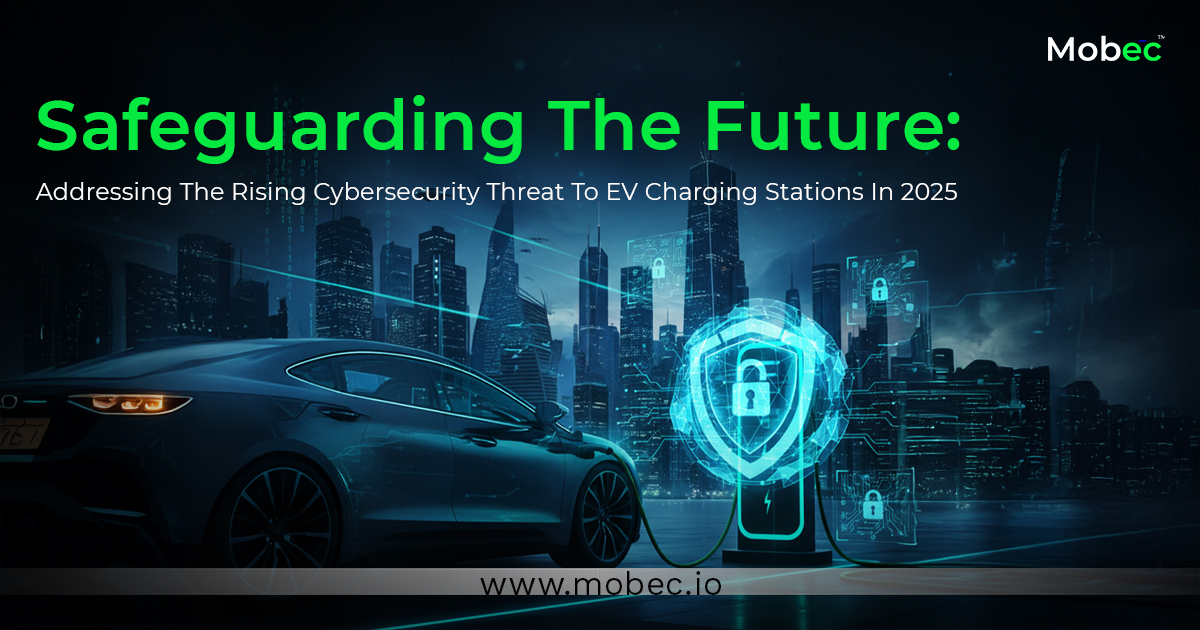Cybersecurity is becoming an essential part of everyday EV charging. You plug in, step away, and trust that the process will run smoothly while your car powers up. It feels routine and hassle-free, just another stop along the way.
What many don’t realize, though, is that today’s charging stations are more than just outlets for electricity. They are smart, connected systems that handle sensitive data like payment details, personal information, and even your vehicle’s identity.
That convenience also brings hidden risks. Recent cases of data breaches in charging networks have shown that even trusted systems can be vulnerable, putting drivers at risk in ways they may not expect.
As EV adoption grows, cybersecurity is no longer just a technical concern – it’s a shared responsibility that affects drivers, operators, and the broader EV ecosystem. A simple plug-in should remain just that: simple, safe, and secure.
How Cyber Threats Affect EV Charging Stations
Imagine stopping at a charging station, plugging in your car, and not realizing that behind the scenes, a cybersecurity risk is targeting your data. That’s not science fiction – it’s already happening.
Here’s how things can go wrong:
- Data leaks: Hackers can access customer details like names, emails, and even payment information if cybersecurity systems aren’t secure.
- Unauthorized access: Weak security can allow outsiders to take control of a charger, mess with its software, or even shut it down.
- Network attacks: Since EV chargers are connected to apps, payment systems, and the grid, a single weak link can disrupt the whole chain.
- Tampered charging: In some cases, attackers could interfere with the charging process by altering charging speeds, voltage, or pricing. This can lead to service disruptions, unexpected costs, or even damage to the vehicle’s battery, creating both inconvenience and financial loss for users and operators.
How We Can Stay Protected
The good news? Just like wearing a seatbelt keeps you safe on the road, there are practical steps that keep EV charging secure. Here are the key ones:
Stronger logins and verifications
Charging stations should use multi-factor authentication (MFA) – for example, a password plus an OTP – instead of simple logins. Secure sign-ins through apps, RFID cards, or verified accounts ensure only genuine users get access.
Data encryption (the “secret code”)
Encryption works like sending your information in a locked box that only the right person has the key to. In EV charging, protocols like TLS (Transport Layer Security) or secure versions of OCPP (Open Charge Point Protocol) make sure hackers can’t read or tamper with your data as it travels between your EV, charger, and app.
Regular check-ups (audits and testing)
Just like cars need servicing, charging stations need regular security audits, penetration testing, and firmware updates. These check-ups help uncover weak points and patch them before hackers can exploit them.
System monitoring
Smart monitoring tools with real-time anomaly detection can spot unusual activity – like unauthorized login attempts or abnormal charging patterns – and block them before they spread through the network.
User awareness
Customers also play a big role. Avoid connecting your EV apps to untrusted devices, keep your apps updated, and report anything suspicious to your service provider. After all, cybersecurity is strongest when both providers and users stay alert.
Mobec’s Commitment to Your Safety
At Mobec, we believe that convenience should never come at the cost of security. Our mobile EV charging solutions are designed with safety built in, so you can focus on driving while we handle the rest.
Here’s how we make sure your data and experience are always protected:
- Secure by design: Our mobile EV chargers are built with strong safety measures from day one.
- End-to-end protection: Every piece of information – from booking a charger to completing a session – is encrypted and kept private.
- Strict compliance: We follow global cybersecurity standards and regulations to make sure we’re always a step ahead.
- Regular upgrades: Our systems are regularly updated and tested to block new types of cyber threats.
- Customer trust: Whether you’re browsing our website or using our mobile EV charging products, your personal and payment details are always safeguarded with the highest level of care.
Mobec doesn’t just charge your EV – it also shields your data.
Conclusion
EVs are the future, but with new technology comes new responsibility. Charging stations are more than just power outlets, they’re digital gateways that need strong protection. Cybersecurity is not a luxury anymore; it’s as important as the electricity that powers your car.
By securing data, monitoring networks, and strengthening cybersecurity measures, we can make EV charging safe for everyone. With Mobec setting the standard, every charge delivers both convenience and uncompromising security.
So the next time you plug in, remember: it’s not just about powering your EV, it’s about protecting your journey.




